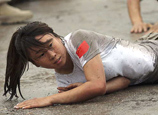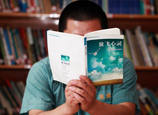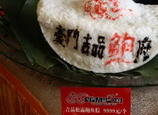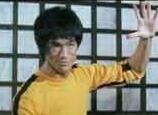
For most Chinese senior high school students, June means a season for exams. Gaokao, on June 7 and 8, is of course the most important one for youngsters and families that hold college or top university dreams.
These two days on the calendar are not just for students, parents or schools but more like a nationwide event that creates a mission for public service employees in every city to provide the best facilities and services for examinees.
But in recent years, the frenzied atmosphere of exam season is not only limited to schools. The hopes of the family are also demonstrated at temples. Many parents and sometimes students come to worship whichever Chinese god they believe can help to bring good luck on examination day.
Last week, over 100 high school students went to Qianwei Temple, the biggest Confucius temple in Sichuan Province, to worship this educational master. The ceremony held in the afternoon attracted many tourists since the students were all wearing Han style clothes like those worn some 2,000 years ago.
According to West China Metropolitan Daily, as the music started, the students filed into the gate to the sculpture of Confucius. They presented flowers and lit incense to honor the ancient philosopher. Then, the students made their vows, "I swear in the name of youth that no matter how rugged and fickle the future is, I will come straight with encouragement… To give my all, never give up and never regret the youth."
Each student also received a red ribbon. On the back of the ribbon, they wrote the name of the university they had targeted or qualities they hoped to possess during the exam such as being calm and careful.
The ceremony in Sichuan was not a single case. The temples in Henan, Liaoning and many other provinces have been filled with students and parents over the last few days.
Some people view such a phenomenon as absurd behavior and a total waste of time, while others consider it a way to relieve pressure or focus mental energy.
Back in fashion
A staff member at the Lama Temple in Beijing told the Global Times that during the exam period, students and parents often come to worship Manjusri, the Bodhisattva of wisdom. It is one of the few gods that examinees in ancient times would worship to achieve a good result and initiate a bright future.
Xia Xueluan, a retired sociologist once at Peking University, said the tradition of worshipping before exams was abandoned after several cultural movements in the last century.
Similarly, Confucius was an extremely significant educational figure for students throughout many dynasties, but Confucianism lost its influential status during those cultural movements. Reviving the tradition is now a trend for many people.
"Although most people do not believe in such traditions of worshipping anymore, some older folks and people who admire historical and cultural inherence still find worshipping a fine way to maintain pleasant emotions," said Xia.
Picking up a tradition that was almost lost in time suggests an old-fashioned philosophy. In traditional Chinese culture, reading and learning were seen as the most important thing in a man's life that could determine his life journey. An excellent exam result could earn a great career for the person in the government.
Now, the social system has changed and people can chose all sorts of careers, but the idea that "good learning leads to a good political future" has remained the same for many people. This traditional value system created parents who hope to change their children's life through the exam.
















 Bodyguard trainees experience 'Hell Week' in Beijing
Bodyguard trainees experience 'Hell Week' in Beijing


![]()
